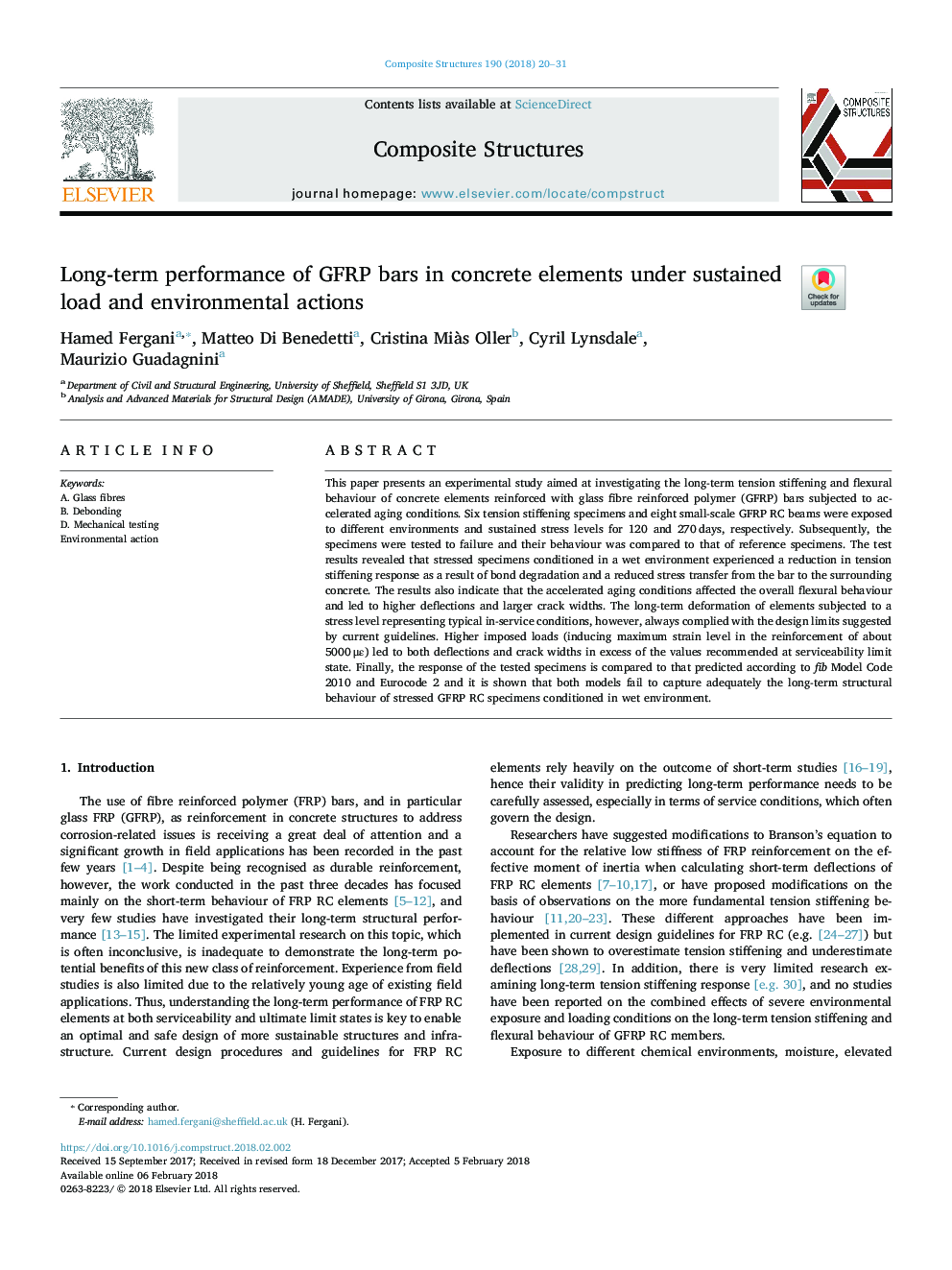| Article ID | Journal | Published Year | Pages | File Type |
|---|---|---|---|---|
| 6703763 | Composite Structures | 2018 | 12 Pages |
Abstract
This paper presents an experimental study aimed at investigating the long-term tension stiffening and flexural behaviour of concrete elements reinforced with glass fibre reinforced polymer (GFRP) bars subjected to accelerated aging conditions. Six tension stiffening specimens and eight small-scale GFRP RC beams were exposed to different environments and sustained stress levels for 120 and 270â¯days, respectively. Subsequently, the specimens were tested to failure and their behaviour was compared to that of reference specimens. The test results revealed that stressed specimens conditioned in a wet environment experienced a reduction in tension stiffening response as a result of bond degradation and a reduced stress transfer from the bar to the surrounding concrete. The results also indicate that the accelerated aging conditions affected the overall flexural behaviour and led to higher deflections and larger crack widths. The long-term deformation of elements subjected to a stress level representing typical in-service conditions, however, always complied with the design limits suggested by current guidelines. Higher imposed loads (inducing maximum strain level in the reinforcement of about 5000â¯Î¼Îµ) led to both deflections and crack widths in excess of the values recommended at serviceability limit state. Finally, the response of the tested specimens is compared to that predicted according to fib Model Code 2010 and Eurocode 2 and it is shown that both models fail to capture adequately the long-term structural behaviour of stressed GFRP RC specimens conditioned in wet environment.
Related Topics
Physical Sciences and Engineering
Engineering
Civil and Structural Engineering
Authors
Hamed Fergani, Matteo Di Benedetti, Cristina Miàs Oller, Cyril Lynsdale, Maurizio Guadagnini,
